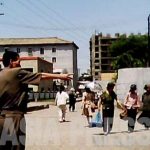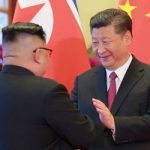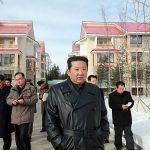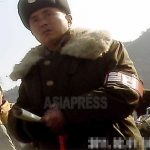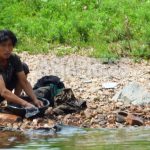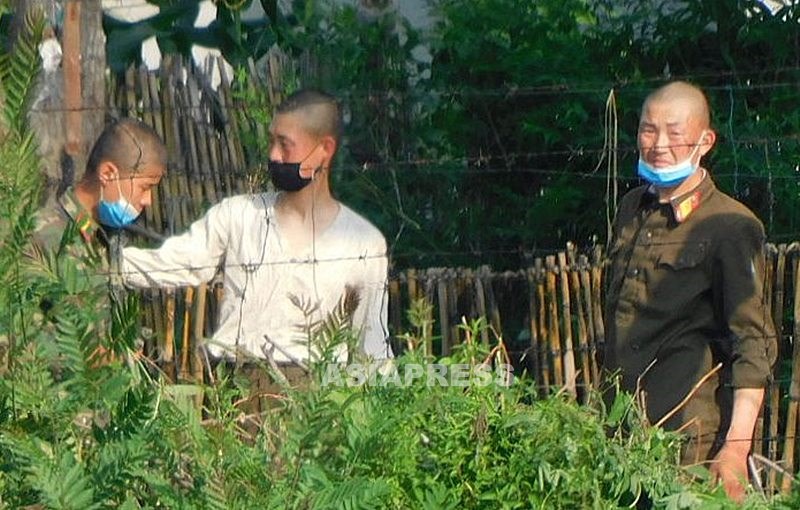
<Lighting Up N. Korea's Four Dark Years> (1) Almost the Only Escape Route -The New Generation ‘Donju’ Who Crossed the Sea Tell About COVID-19, Chaos, and Social Change
Shortages and rising prices due to the border closure were the first hardship imposed on North Koreans. However, the government's ruthless and indiscriminate quarantine policy was the second hardship forced on the North Korean people, terrorizing the population and threatening their livelihoods. This article examines the government's quarantine policy and its impact on people's lives. (JEON Sung-jun)
◆ Frozen Production and Distribution, Signs of a Humanitarian Crisis
Overzealous quarantine measures by the authorities to prevent COVID-19 from entering and spreading added to the chaos caused by the border closures. Fearing that COVID-19 could be introduced by sea, the authorities banned fishing activities as part of the "quarantine measures." Kang Kyu-lin, a 23-year-old fishing boat owner, recalls:
"They brought all the boats that were in the water ashore and later told us to get rid of them. People spent a lot of money (building the boats), but they didn't compensate us, and they took them all away."
Meanwhile, on the west coast, Kim Chung-yeol says boats were broken by the typhoon as authorities banned access to the coast.
"A little trimming of the anchor line would have been fine... but they have orders to shoot you [if you approach the coast], so the coast guard soldiers who we knew were begging, 'please don't go out (to sea).'"
Transportation to distribute goods was also paralyzed as the government controlled movement in the name of containing the virus. "It was just a nightmare," Kim recalls.
By then, signs of a humanitarian crisis were already emerging. On July 15, 2020, ASIAPRESS warned of signs of a humanitarian crisis when it introduced an internal survey of major cities in the North, including Hyesan, Sinuiju, Hoeryong, and Chongjin.
Reporting partners said there was an increase in the number of homeless people in markets and in front of train stations, people from urban areas abandoning their homes in the city and moving to the mountains, and married women being forced into prostitution due to living difficulties. In the fall, there was a noticeable increase in the number of city dwellers traveling to the countryside to pick up corn left over by farmers or to beg.
<Internal Survey of N. Korea> Coronavirus Economic Crisis Forces Married Women into Prostitution, Urban Poor into Foraging, and Orphans into Begging
This is due to the stagnation of circulation and the drop in cash income of urban residents because of the quarantine policy.
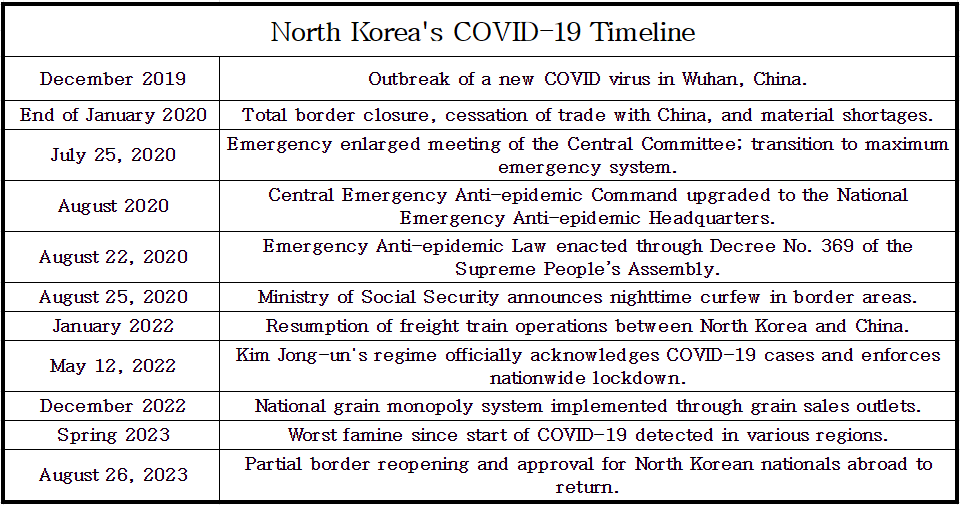
◆ "I Didn't Think It Would Be This Bad," Amplifying Discontent with the State
During this time, the public's perception of the country and its leaders also seems to have changed significantly.
"We thought, 'Our economy has hit rock bottom,'" says Kang.
"The price of domestic food had gone up so much, and when I said, 'Why is it going up when candy is domestic,' they said, 'You're so naive, where is domestic? They imported everything from the wrappers to the ingredients and just changed the letters.’ What, you can't even make sweets, but you lied and advertised them as ours? That made people's perception of things even worse."
When asked what the pandemic has changed most for North Koreans, Kim Chung-yeol doesn't hesitate for a second before answering: distrust of the state.
"We all knew our country isn’t wealthy, but we didn't think it would be this bad," he says.
"Before, there was an expectation that (the leader) would develop the economy, but COVID-19 has changed people's perception of Kim Jong-un 100 percent," says Kim Myung-ok.
The pandemic also seems to have affected residents' attitudes about their lives and the future.
Kim Chung-yeol says the COVID-19 experience solidified his decision to defect.
"I just wanted to live well with my family. I did know the nature of North Korea, but I thought I could live well on my own land. But when COVID-19 happened, North Korea became a strange country, so I thought, 'I can't live in my own country, and neither can my children... we can't do this anymore.'"
◆ 'Quarantine is Aimed at Protecting the Supreme Leader'
Authorities have responded to growing public discontent with harsh punishments and controls.
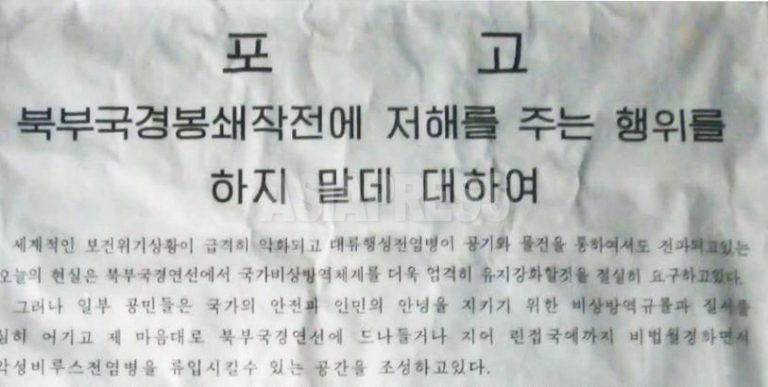
In late August 2020, North Korea issued a declaration on behalf of the Ministry of Social Security (the national police agency) vowing to severely punish anyone who disrupts the border closure. The statement said, "People and animals who enter our side of the Yalu and Tumen rivers will be shot without warning." The decree also imposed a nighttime curfew, prohibiting the passage of people and vehicles from 8 p.m. to 5 a.m. during the summer solstice and from 6 p.m. to 7 a.m. during the winter solstice.
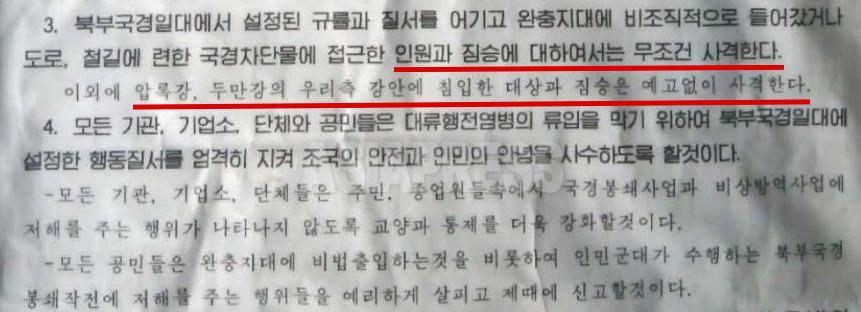
<Secretly Obtained N. Korean Documents> “People Approaching the Border will be Shot on Sight”...Police Notice Reveals Ruthless Coronavirus Measures
At the same time, the authorities tightened supervision and control over organizations and businesses.
Kim Chung-yeol's duty as captain of a fishing base during the pandemic was to monitor, identify, and report to the authorities the trends of the fishermen and to inform the fishermen of the directives issued by the party and to enforce them. Fishing production took a back seat, and the care and management of the sick was a distant second.
"The social atmosphere was such that you were treated as a pariah if you were sick, and it was very scary because the quarantine work was directly linked to the reception guard, and people around me were being punished, and it was five years (in prison), 10 years for the most serious cases, so I was hoping I wouldn't get caught."
It is noteworthy that the authorities linked the prevention of COVID-19 to the security of the "highest dignity," thus legitimizing the repression.
An acquaintance who worked for the Ministry of Social Security at the time told Kim that more than 600 cadres had been punished for violating quarantine regulations. Given that this was before the virus had even spread in North Korea, it's not unreasonable to think that people feared state punishment for more than just the virus.
What is clear is that the suffering of North Koreans began before COVID-19 arrived, and it will not be the last. Here's a look at how the government’s anti-market policies, designed to take food off people's plates, have plunged them into even more pain. (To >>4)
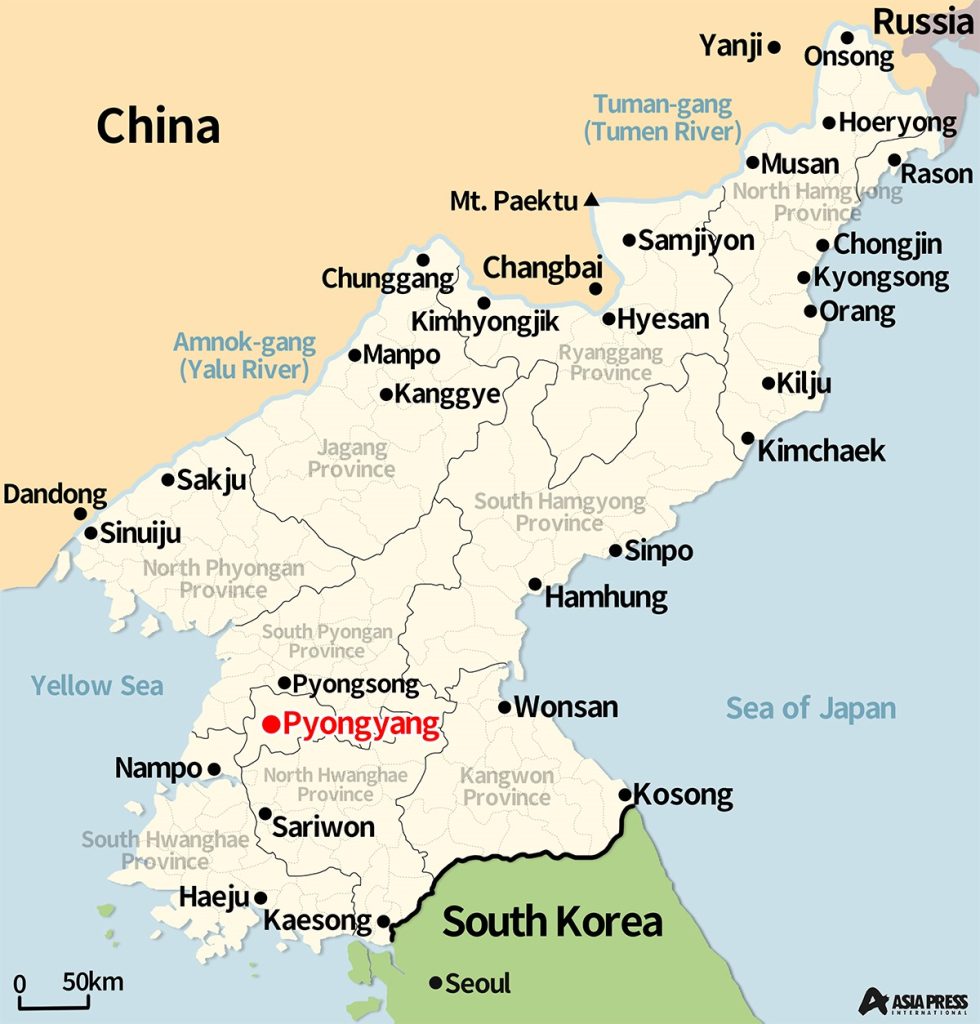
<Lighting Up N. Korea's Four Dark Years> (1) Almost the Only Escape Route -The New Generation ‘Donju’ Who Crossed the Sea Tell About COVID-19, Chaos, and Social Change
- <Lighting Up N. Korea's Four Dark Years> (10) The Capitalist Ghost Under the Socialist Roof (2) "Leave the Quota to Me" - Are Wealthy Individuals the Driving Force of Rural Economy?
- <Lighting Up N. Korea's Four Dark Years> (9) The Capitalist Ghost Under the Socialist Roof (1): From Private Ship Owners to 'Unions' Negotiating with the Central Party... Ship Owners Pushing Boundaries
- <Lighting Up N. Korea's Four Dark Years> (8) Pandemic-Induced Financial Crisis and the Regime's Response: 'Tax-Free' North Korea Imposes New Levies, Including 'Fireplace Tax'
- <Lighting Up N. Korea's Four Dark Years> (7) North Korea’s Pandemic Power Play: State Seizes Market Control as “Donju” Crumble
- <Lighting Up N. Korea's Four Dark Years> (6) Humanitarian Crisis is a Man-Made Disaster: Intensifying Chaos and Disorder... North Korean Version of 'War on Crime' as Told by COVID Survivors
- <Lighting Up N. Korea's Four Dark Years> (5) What Happened During COVID... "Drink Willow Branch Brew" - Misguided Quarantine Policies Only Led to Residents' Deaths
- <Lighting Up N. Korea's Dark Four Years> (4) “The People Are at the End of Their Tether”: A Country that Wants to Control Markets and Rule by Calories
- <Lighting Up N. Korea's Four Dark Years> (2) The First Link in a Tragic Chain - Border Closure... "Corona Was a Nightmare, It Was Difficult to Buy Even a Single Needle"
- <Lighting Up N. Korea's Four Dark Years> (1) Almost the Only Escape Route -The New Generation ‘Donju’ Who Crossed the Sea Tell About COVID-19, Chaos, and Social Change
